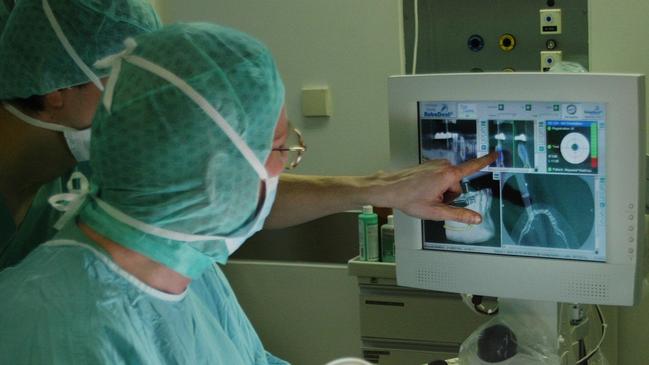How Vic’s bizarre hospital deal increased staffing issues
Would you work seven more hours for the same pay? Damning report reveals Victoria accidentally deterred doctors from working full-time during staff shortages.

Victoria
Don't miss out on the headlines from Victoria. Followed categories will be added to My News.
Victoria has an unsustainable “reliance” on international doctors and exacerbates shortages by paying clinicians the same wage to work fewer hours, an expert panel has warned.
Their report detailed several issues across the public hospital system including patient and doctor safety concerns, poor workforce planning, overtime levels and gaps in bullying protections.
The Ministerial Review, focused on workplace conditions for public sector doctors, was quietly published on Monday, after being handed to Health Minister Mary-Anne Thomas in May last year.
The review panel heard hiring and keeping regional staff was “challenging”, doctors’ careers had suffered after reporting senior colleagues and our reliance on internal medical graduates was “not sustainable”.
Safer Care Victoria and the Health Department should play a greater role in issues that ultimately impact patient care, they added, such as fatiguing rosters.
Former Fair Work Commission deputy president Greg Smith chaired the panel, working alongside Grampians Public Health Unit executive Professor Rosemary Aldrich and Alfred Health medical services director Dr Tony Kambourakis.
The trio also heard overtime and on-call work was having a “significant” impact on work-life balance, and there was a “mismatch” between the number and location of public doctor jobs, and the population’s needs.

“This mismatch appears to be due to a lack of co-ordination in planning, recruitment, and opportunity together with longstanding conventions regarding patterns of work and models of care,” it said.
They found a “significant difference” in full-time and fractional hourly pay had also “created a disincentive for full-time or higher fractional employment with the consequent staffing and rostering issues”.
“For example a year 9 specialist working fractionally for 31.33 hours per week earns the same weekly amount as a full-time year 9 specialist working 38 hours per week,” the report said.
“Additionally, in the current agreement, specialists of the same level of experience working fewer than 17.6 hours per week are paid less than someone of the same level of experience working 17.6 to 35 hours per week.”
The panel found many doctors had an understandable belief “that to raise an issue about a senior doctors can impact seriously upon a career” — and heard several examples of such cases.

They noted it was not “unreasonable to link poor workplace culture to less than optimal patient outcomes”.
Other issues raised included an “over use” of fixed term contracts, creating job insecurity, and a system that “limits the extent to which specialist training meets community needs”. It said there was also a lack of training for doctors in leadership and management positions, and too much of doctors time was taken up by non-clinical tasks.
The report made 20 recommendations, including creating equal pay for full and part-time doctors in future wage agreements, establishing a service to help regional hires find housing, schools, childcare and more and improving administrative support for doctors.
This would include by employing fourth-year medical students as “assistants” in medicine.
The government said they recognised the medical workforce’s “vital role” and accepted all bar one “in principle or in full”.
They rejected the panels suggestion to create a “Doctor’s Advocate”, arguing clinicians could already raise grievances through existing bodies.
It was not clear how or when the other recommendations would be implemented, with the government stating “agreed recommendations will be progressively implemented through the next round of bargaining or subject to future budgets”.
A Victorian government spokeswoman said work would happen “progressively, with long-term changes also a priority”.
“The implementation of the report’s recommendations will improve fairness and equity and provide more stability and career progression for doctors across Victoria,” she said.
Originally published as How Vic’s bizarre hospital deal increased staffing issues


